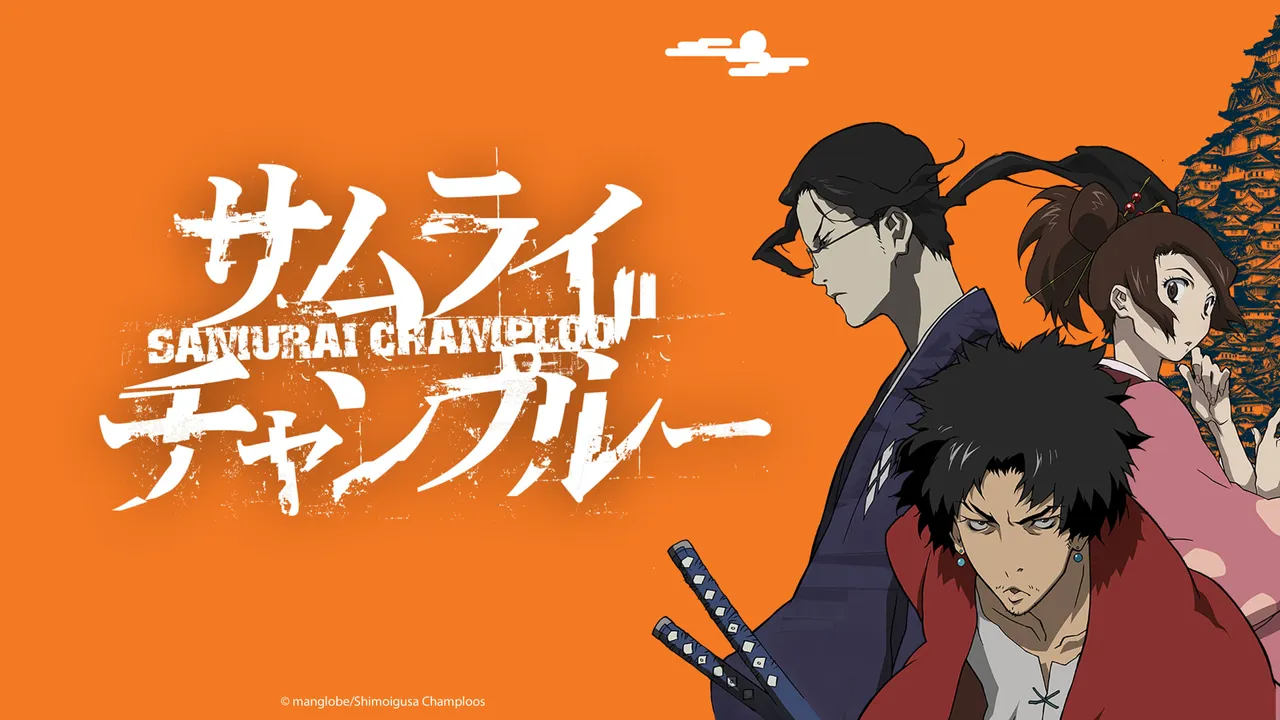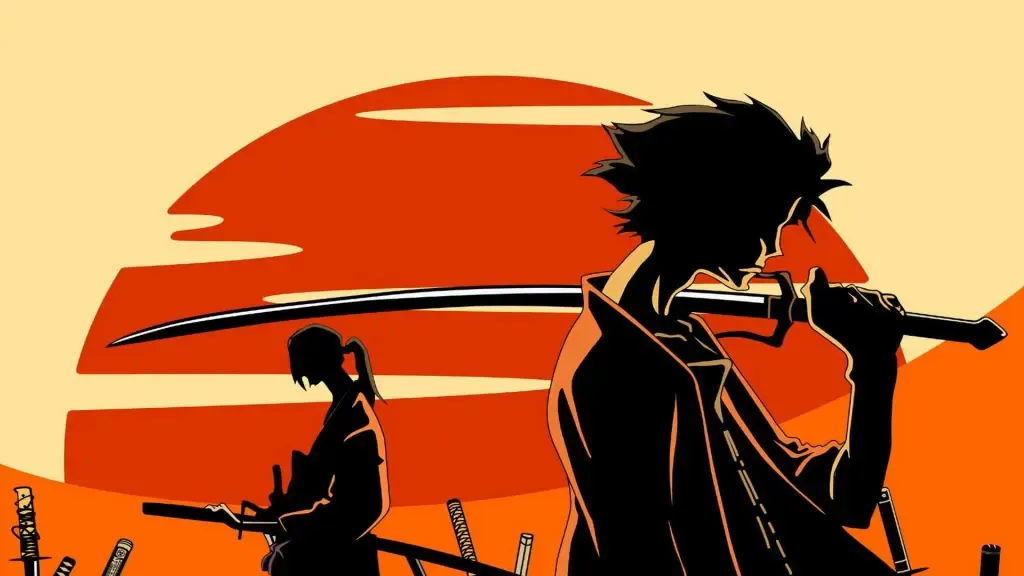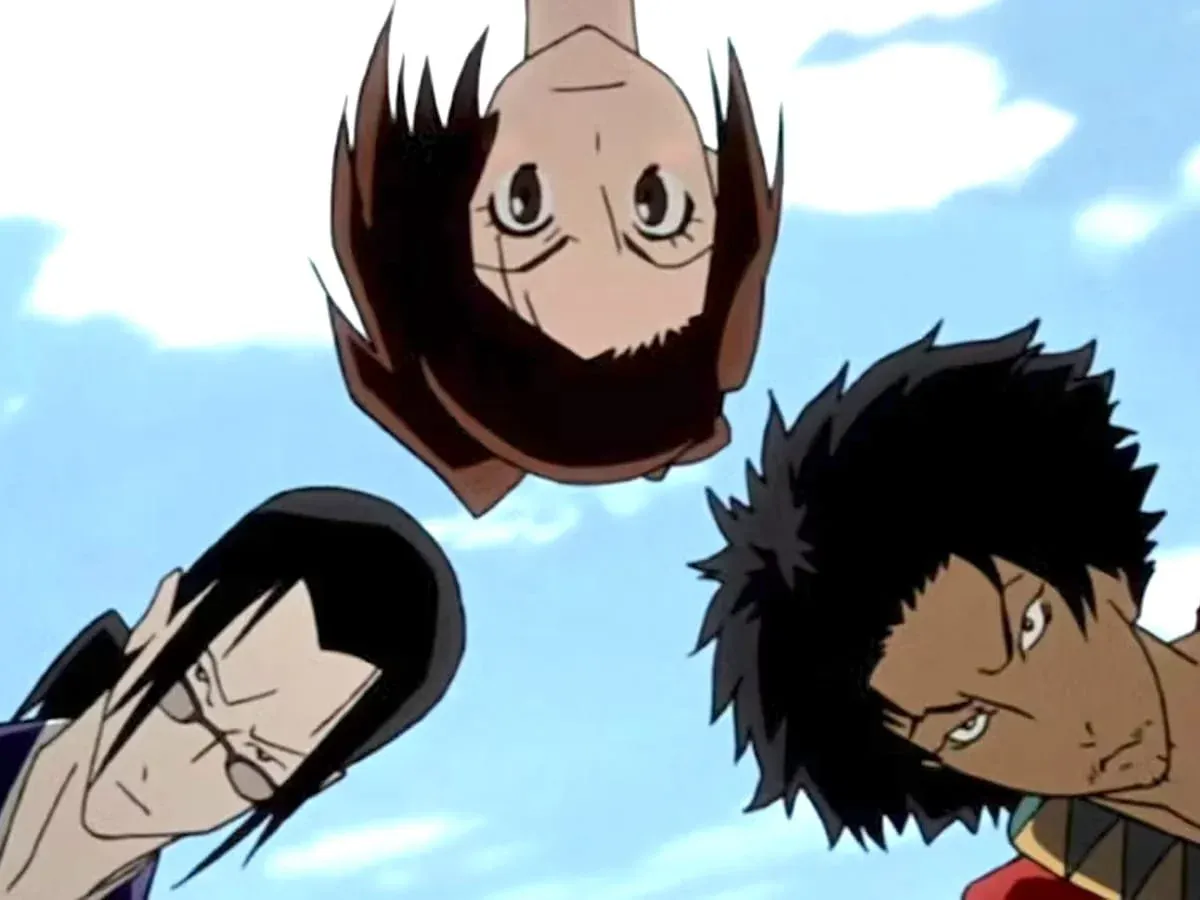
I just finished Samurai Champloo after years of putting it off, and wow, what a gem I was missing. The series is that impossible blend that ends up working like magic: feudal Japanese samurai with street hip-hop soul. It sounds like a crazy experiment, but on screen it feels natural, like they always belonged in the same universe.
I stumbled upon the series almost by accident, like I imagine many did. I first discovered Nujabes' music—those chill jazz and lo-fi beats that are pure therapy for the ears. I became such a fan of his work that when I found out he’d done the soundtrack for Champloo, I just had to watch it. And man, what a great call. The music doesn’t just accompany the show; it’s the heart of everything. Every fight, every silence, every landscape moves to the rhythm of those scratches and basslines, as if the Edo period had its own secret playlist.

What surprised me most was how they fused two such opposite worlds. On one side, you’ve got bushido with its honor, katanas, and that serene philosophy; on the other, the raw energy of hip-hop, with its rebellious attitude, graffiti, and street-born flow. Mugen is pure chaos: he fights like he’s breakdancing, with dreads and a defiant grin. Jin, on the other hand, is pure elegance, like a technical verse turned samurai. Together, with Fuu guiding them on their quest to find the "samurai who smells of sunflowers," they create a dynamic you can’t help but love.
The story itself is simple: a journey full of stops, each episode a standalone adventure where you meet runaway artists, ridiculous mobsters, or underground tournaments. But what matters is the journey, not the destination. That’s where the series shines, mixing absurd humor with moments of quiet beauty.

And speaking of beauty, the ending… whew. No spoilers, but those final episodes left me trembling. Suddenly, all that cool attitude turns deeply human. The fights aren’t just spectacle anymore; they’re screams of pain, broken loyalties, and questions about what it truly means to be free. Nujabes’ soundtrack in those moments is a punch to the heart. I came out with teary eyes and that rare feeling of having witnessed something special—not just an anime, but a reflection disguised in swords and beats.
In short, Samurai Champloo is like that classic album that never goes out of style. It might be from 2004, but its blend of tradition and urban culture, its soulful action, and unforgettable music make it timeless. If you like stories with personality, characters that stick with you, or just want to watch something different, this is a very, very big recommendation. For me, it was an unexpected trip that ended in pure love.
Spanish Version
Acabo de terminar Samurai Champloo después de años de posponerla, y qué joya me estaba perdiendo. La serie es esa mezcla imposible que termina funcionando de maravilla: samuráis del Japón feudal con alma de hip-hop callejero. Suena como un experimento loco, pero en pantalla se siente natural, como si siempre hubieran pertenecido al mismo universo.
Yo llegué a la serie casi por accidente, como supongo que muchos. Primero conocí la música de Nujabes, esos beats relajados de jazz y lo-fi que son pura terapia para los oídos. Me volví tan fan de su trabajo que, cuando descubrí que había hecho la banda sonora de Champloo, no tuve más remedio que verla. Y vaya acierto. La música no solo acompaña, es el corazón de todo. Cada pelea, cada silencio, cada paisaje se mueve al ritmo de esos scratches y bajos, como si el Edo-periodo tuviera su propia playlist secreta.

Lo que más me sorprendió fue cómo fusionan dos mundos tan opuestos. Por un lado, tienes el bushido con su honor, sus katanas y esa filosofía serena; por el otro, la energía cruda del hip-hop, con su actitud rebelde, el graffiti y ese flow que nace en las calles. Mugen es puro caos: pelea como si estuviera breakdanceando, con rastas y una sonrisa desafiante. Jin, en cambio, es elegancia pura, como un verso técnico hecho samurái. Juntos, con Fuu guiándolos en su búsqueda del "samurái que huele a girasoles", crean una dinámica que es imposible no querer.
La historia en sí es sencilla: un viaje lleno de paradas, cada episodio una aventura independiente donde conoces artistas fugitivos, mafiosos ridículos o torneos clandestinos. Pero lo que importa es el camino, no la meta. Es ahí donde la serie brilla, mezclando humor absurdo con momentos de una belleza callada.

Y hablando de belleza, el final… uf. Sin spoilear, esos últimos capítulos me dejaron temblando. De repente, toda la actitud cool se vuelve profundamente humana. Las peleas ya no son solo espectáculo; son gritos de dolor, lealtades rotas y preguntas sobre qué significa realmente ser libre. La banda sonora de Nujabes en esos momentos es un puñetazo al corazón. Salí con los ojos brillantes y esa rara sensación de que había visto algo especial, no solo un anime, sino una reflexión disfrazada de espadas y beats.
En resumen, Samurai Champloo es como ese disco clásico que nunca pasa de moda. Puede que sea del 2004, pero su mezcla de tradición y cultura urbana, su acción con alma y su música inolvidable la hacen eterna. Si te gustan las historias con personalidad, los personajes que se quedan contigo o simplemente quieres ver algo diferente, esta es una recomendación muy, muy grande. Para mí, fue un viaje inesperado que terminó en puro amor.
Imágenes extraídas de la web
